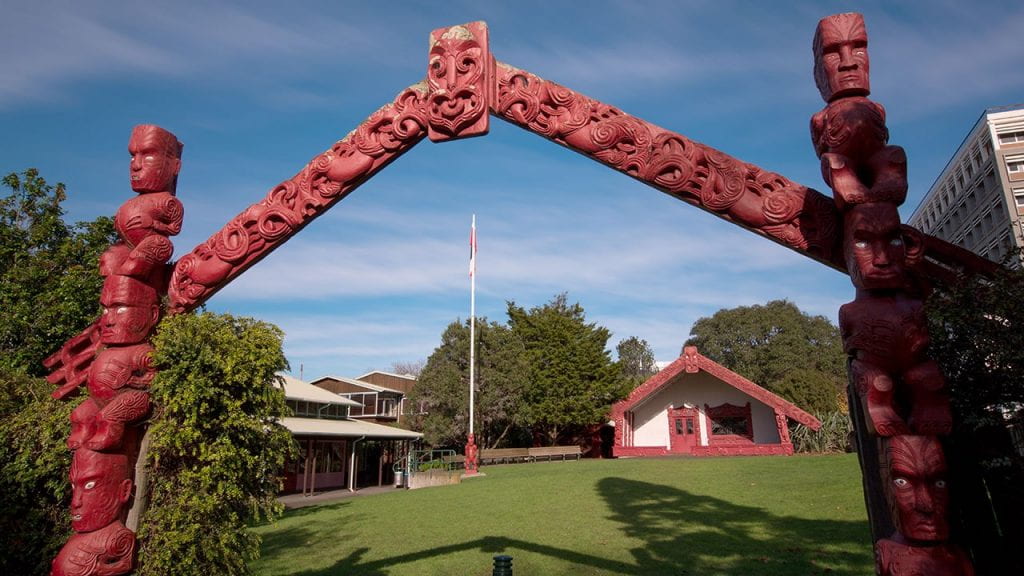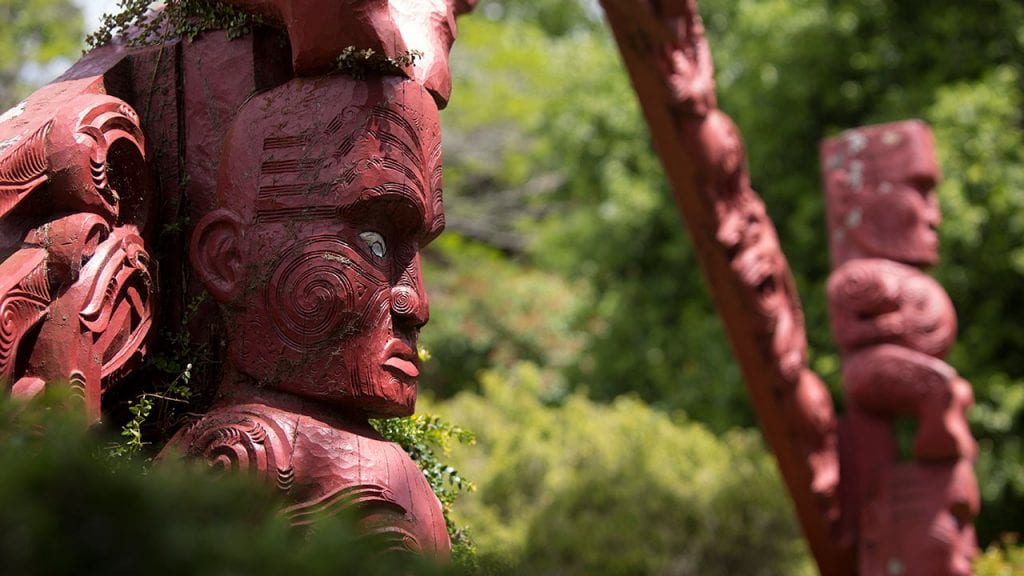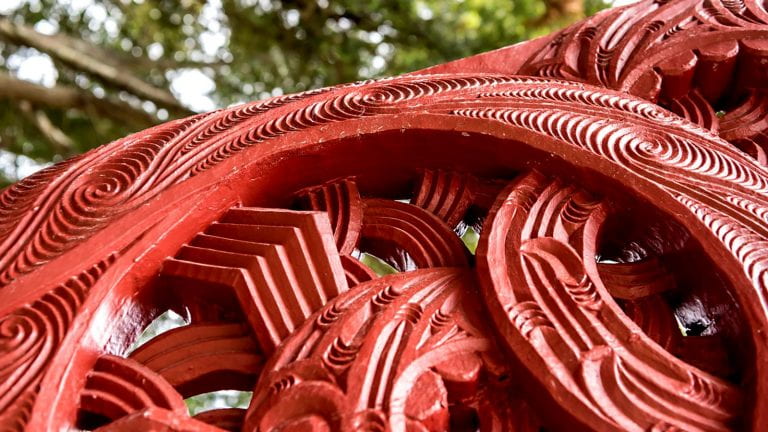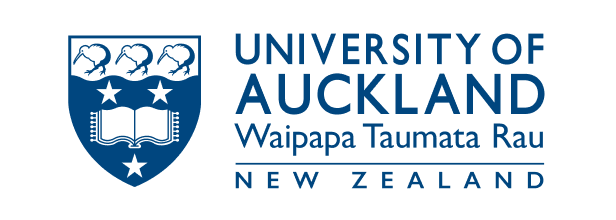Partnership with Māori
The name Waipapa Taumata Rau was gifted to the University of Auckland by the people of Ngāti Whātua Ōrākei and reflects our significant partnership with them and the commitments made through Taumata Teitei, including to the principles of manaakitanga, kaitiakitanga and whanaungatanga. The name challenges us to understand that we are part of a whakapapa of historic and current relationships. It also reflects the aspiration of the University of Auckland to be the ‘place of many peaks’, the place where we strive for, ascend to, succeed and thrive.

Kaiarataki Deputy Pro Vice-Chancellor Māori, Michael Steedman briefly explains the origin and the meaning behind the new name adopted by the University of Auckland, Waipapa Taumata Rau.

Te Tiriti o Waitangi is an agreement between the British Crown, represented by Lieutenant-Governor William Hobson, and Māori rangatira (leaders) representing their various iwi and hapū (tribes and sub-tribes) and was first signed at Waitangi on Feb 6th 1840. Key rangatira of Ngati Whatua Ōrākei, the tribal group upon whose territory the city campus of the University resides, signed Te Tiriti on the 20th of March at Manukau Harbour. Te Tiriti o Waitangi provides the foundation for the legal and political constitution of New Zealand, and is the basis for ongoing relations between iwi, hapū, Māori peoples and the New Zealand government. The Treaty was drafted in English, and then translated into te reo Māori (the Māori language) to become Te Tiriti, the document agreed and signed by British officials and rangatira in 1840. The text of Te Tiriti differs significantly from its English language draft in a number of crucial respects. The last four decades in Aotearoa New Zealand have been a period of working out how to interpret and implement Te Tiriti in the public sector especially, with the differences and overlaps between ‘rangatiratanga’ and ‘sovereignty’ being a key point of tension.

The University values its relationships with mana whenua (local iwi and hapū) highly. The University has recently agreed a Kōtuitanga (MoU) with Ngāti Whātua Ōrakei to cooperate for mutual benefit. The University is working to develop meaningful relationships with the hapū, iwi and Māori communities of the places upon which our campuses stand.
On its city campus, the University maintains a marae (traditional meeting space), known as Waipapa, which is used widely within the University community and is supported by mana whenua. The University also maintains the marae, Te Aka Matua ki Te Pou Hawaiki, at its Epsom campus. The meeting house Tūtahi Tonu, will in 2024 also move to the city campus, as part of the relocation of the faculty of education and social work.
The Treaty partnership is reflected in the work of the office of the Pro Vice Chancellor (Māori), and by the Māori membership on the University’s Council.
One of the main purposes of the Education and Training Act 2020 is to establish and regulate an education system that ‘honours Te Tiriti of Waitangi and supports Māori-Crown relationships’. As a public institution, the University of Auckland is implicated in several provisions of this Act which may include: giving effect to public service objectives to provide equitable outcomes to students; providing for Māori contributions to tertiary decision-making; acknowledging the principles of Te Tiriti o Waitangi; and operating an employment policy that recognizes the aims and aspirations of Māori. that relate to Te Tiriti o Waitangi as specified by the minister of Education and the Minister of Māori- Crown relations.

The University’s commitment to te Tiriti is expressed in its Taumata Teitei – Vision 2030 and Strategic Plan 2025 where our enduring relationship with tangata whenua is based on Te Tiriti o Waitangi and expressed through Te Ao Māori principles. Te Tiriti underpins the enduring framework Toitū Waipapa which is developing to guide all aspects of University culture and practice. The University is committed to being the leading university for Māori and Indigenous scholarship. It currently co-hosts Ngā Pae o te Māramatanga, New Zealand’s Māori Centre of Research Excellence, and maintains the James Henare Māori Research Centre –in addition to other centres and departments.
Employees of Waipapa Taumata Rau are expected to develop their understanding of Te Tiriti in both historical perspective and contemporary application. Candidates are not expected to bring this knowledge, but be committed to acquiring a deeper understanding. Staff are supported in their learning at all levels.

Waipapa Taumata Rau - Our gifted name
Te Ao Māori Principles
We are committed to positively impacting society, and to the advancement and exploration of knowledge. We will do this in ways consistent with our emerging Waipapa framework. Our fundamental principles reflect our foundational relationship with tangata whenua and our commitment to Te Tiriti.
Manaakitanga – Caring for those around us in the way we relate to each other.
Whanaungatanga – Recognising the importance of kinship and lasting relationships.
Kaitiakitanga – Valuing stewardship and guardianship and our relationship with the natural world.

